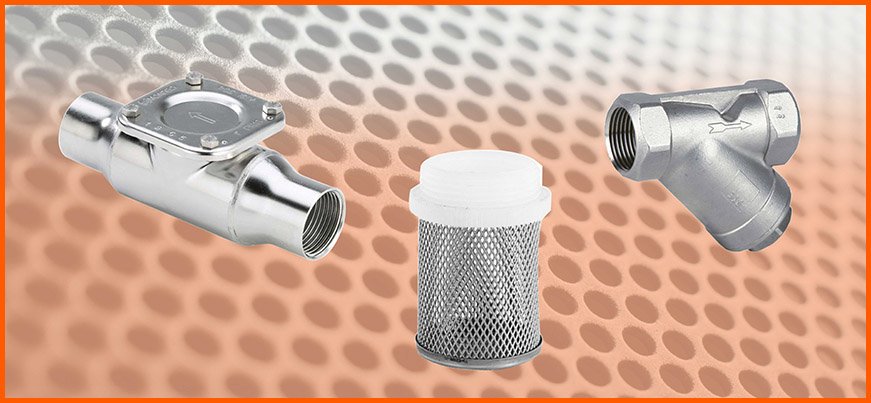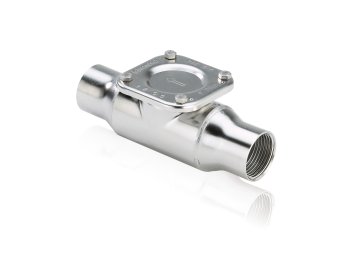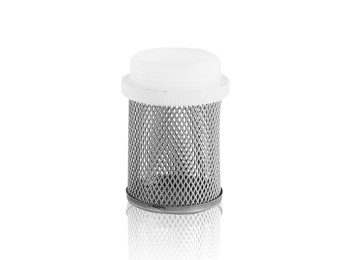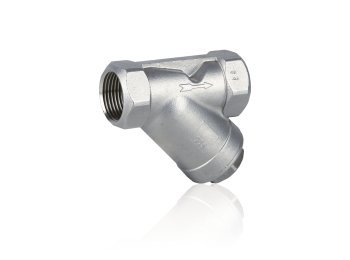Steel Hydraulic Filters: Protection and Efficiency for Systems.
The protection of the hydraulic system is linked to a component that is often underestimated: the filter.
This device, installed upstream of the system or in strategic points, functions to remove impurities, sediments, and solid residues, ensuring better efficiency and longer component life. This is why installing quality filters in a system is an added value for customers.Why the filter is indispensable.
Water distributed in domestic and industrial systems may contain sand, rust, or solid particles from the distribution networks or internal pipes. If these sediments are not intercepted and retained:
- they increase pressure losses;
- they accelerate component wear;
A well-sized filter, correctly installed and periodically maintained, prevents damage and helps reduce management costs.

How to choose a hydraulic filter.
When choosing a filter, it is important to consider the filtration rating, i.e., the micron classification indicating the size of particles the filter can trap. Equally important is the material, especially for heavy-duty applications or when specific requirements are needed.
The value of steel in systems.
Regarding materials, choosing a stainless steel filter offers many advantages in terms of quality and durability. Steel guarantees:
- corrosion resistance;
- hygiene: this material prevents bacterial growth and maintains water quality;
- robustness: steel withstands vibrations and harsh operating conditions typical of civil and industrial systems;
- longevity, thus reducing costs in the medium-to-long term;
- sustainability: steel is 100% recyclable.
Y-filters: a solution for multiple applications.
There are different types of filters. Y-filters, among the most common, are named after the shape of the main body. Their mechanism involves inserting a mesh or filter basket in the angled branch. The liquid passes through the mesh, making it easy to separate solid particles. The drain cap on the other branch allows inspection and cleaning without disassembling the piping.
Y-filters are used in both civil and industrial hydraulics. They are suitable for a wide range of applications:
- civil hydraulic systems, for the protection of valves, taps, pumps, and meters;
- heating and cooling systems, to intercept sediments that could damage the boiler or the circuit performance;
- industrial applications, to preserve pumps, valves, and measuring devices in the systems;
- irrigation systems: to protect pumps and prevent blockage at water outlets.
Inline filters: ideal to reduce pressure loss.
In a hydraulic system, the filter always causes a localized pressure loss. Inline filters, however, ensure significantly lower pressure losses compared to Y-filters because they allow liquid to flow without deviation. They are installed directly on the piping, in line with the water flow. The filter design provides immediate benefits in terms of energy efficiency and reduced component wear, thanks to reduced pumping effort and overall energy savings.
Inline filters are widely used in residential applications to protect appliances such as washing machines, dishwashers, boilers, and water heaters. The compact design allows easy installation before the appliances’ water supply, even in tight spaces as often occurs in domestic connections. This barrier against limescale and rust extends appliance life and reduces maintenance interventions.
Suction filters: essential protection for pumps.
Suction filters are installed at pump inlets, where they act as a mechanical barrier. They are cylindrical bodies made with a metal mesh, which can be stainless steel to ensure the highest quality standards. The mesh or filter basket, chosen with finer or coarser openings depending on the application, blocks residues in the liquid, protecting the pump from damage that could compromise system reliability. Using suction filters is a fundamental form of direct protection when pumps draw from tanks, reservoirs, or wells. Typical applications include irrigation, water supply, fire-fighting systems, and industrial plants.
Discover our range of inline, Y-type, and suction hydraulic filters and choose the model best suited to your system.























